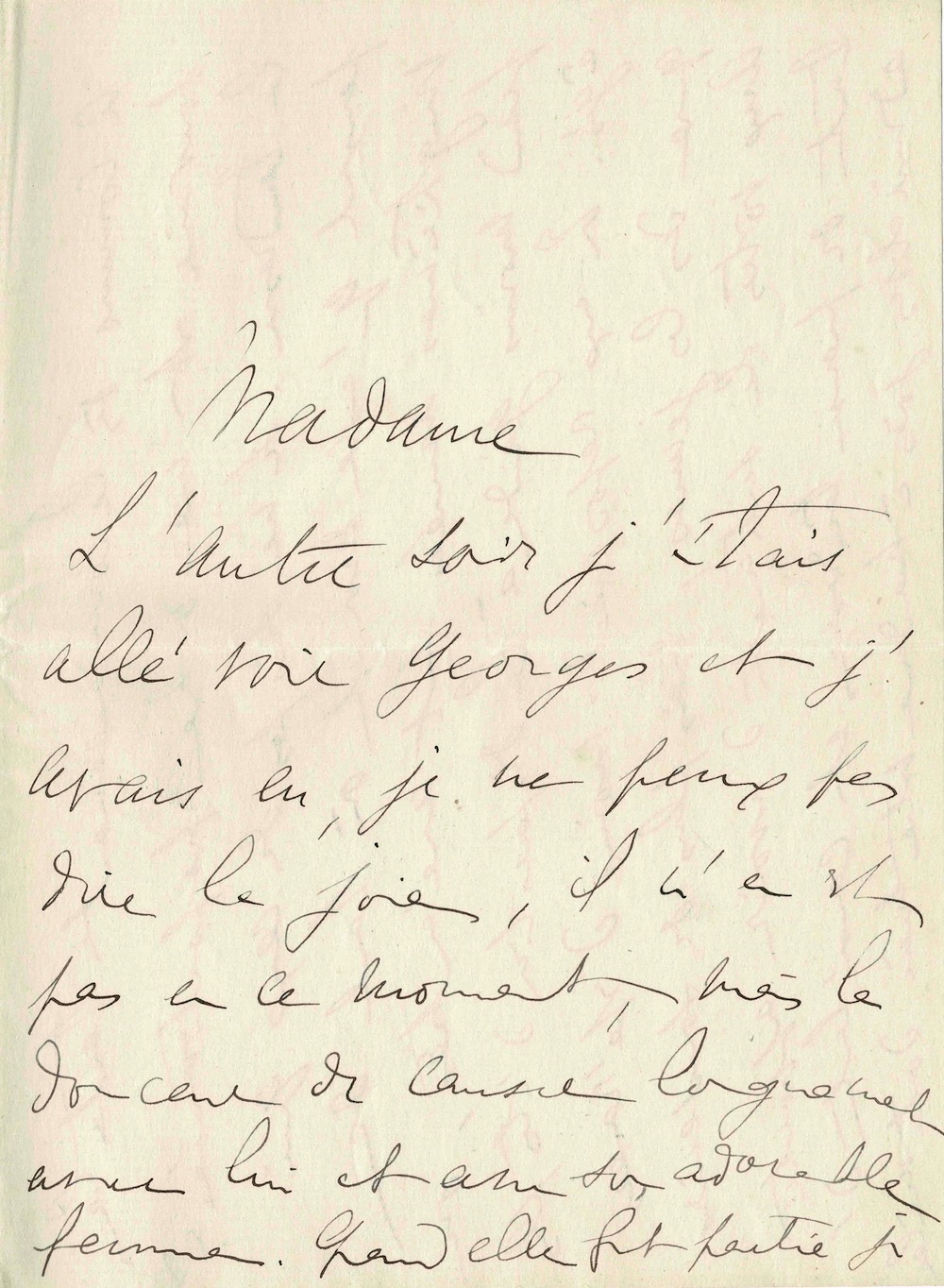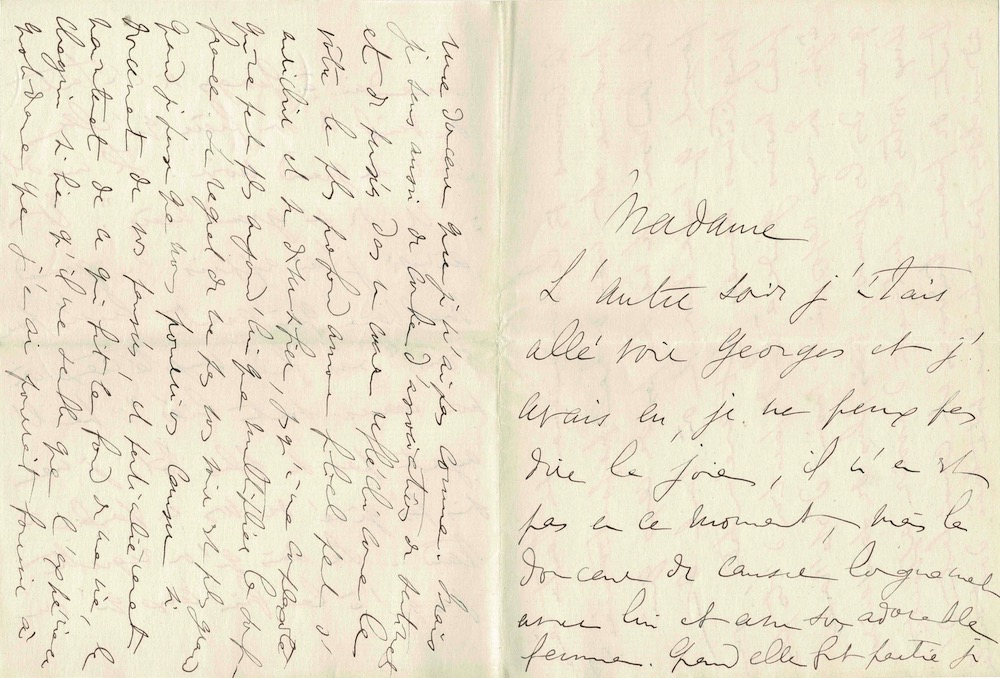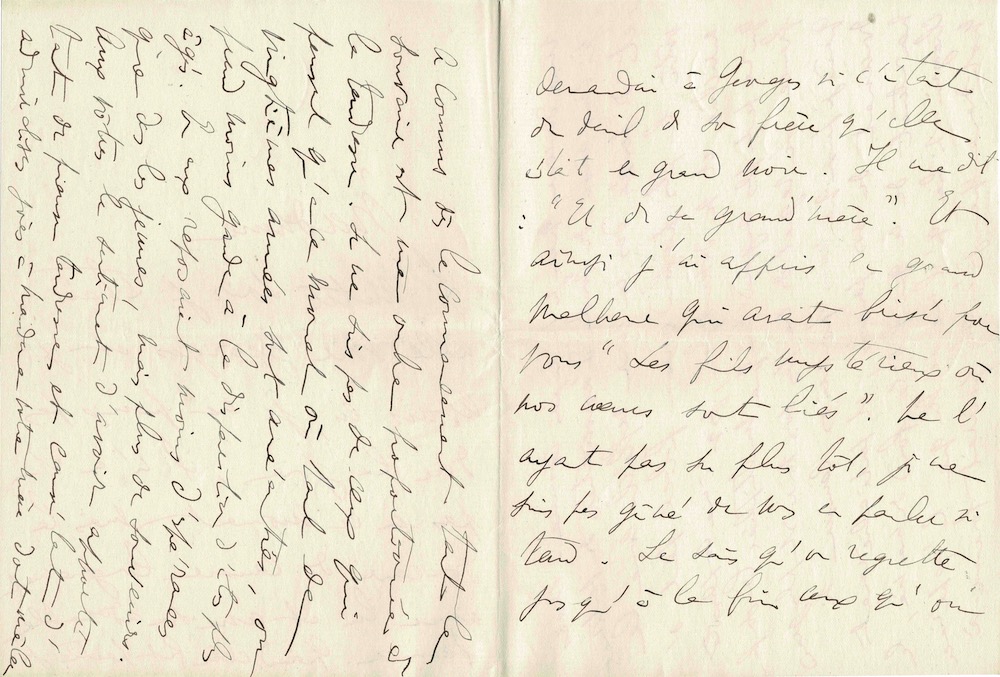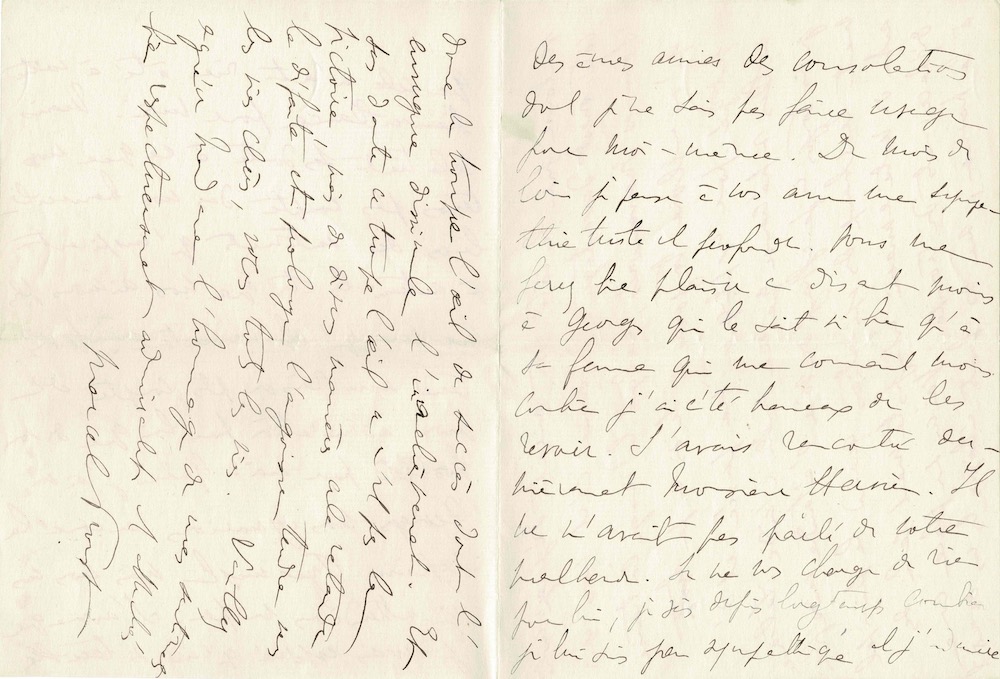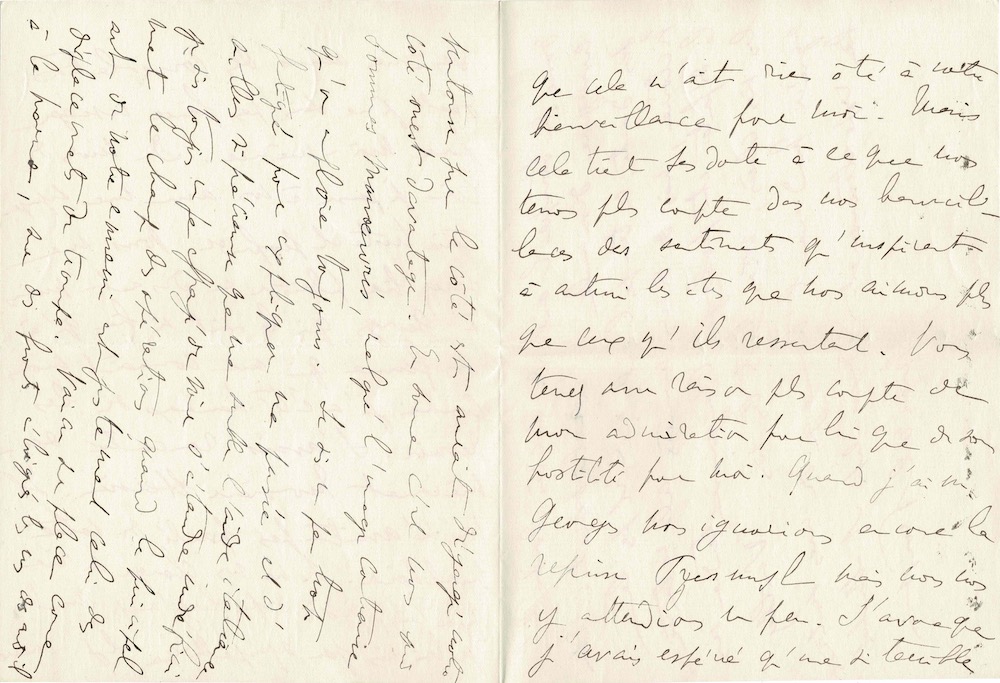Marcel Proust (1871.1922)
Autograph letter signed to Baroness Aimery Harty of Pierrebourg.
Eight pages in-8°. Slnd [shortly after June 3, 1915]
Kolb, Volume XIV, pages 143 to 145.
“I know that we regret until the end those we knew from the beginning as memory is a shadow proportionate to tenderness. »
At the heart of the First World War, Proust delivered to his correspondent a magnificent letter of condolence following the death of his mother. Moved to see young French souls die at the front, he confesses bluntly that grief is a constituent part of his being: "so much so that it seems to me that the daily experience that I have of it could provide friendly souls with consolations which I do not know how to use for myself. »
_______________________________________________
“Madame, The other evening I went to see Georges and I had, I cannot say the joy, it is not there at the moment, but the sweetness of chatting at length with him and with his adorable wife . When she had left I asked Georges if it was because of her brother's mourning that she was in full black. He said to me: “And his grandmother.” And so I learned of this great misfortune which had broken for you “The mysterious threads where our hearts are linked” [verse by Victor Hugo] . Not having known about it earlier, I am not embarrassed to tell you about it so late. I know that we regret until the end those we knew from the beginning as memory is a shadow proportionate to tenderness.
I am not one of those who think that at this moment when so many twentieth years are wiped out, we are less careful about the disappearance of older beings. In them rested fewer hopes than in the young, but more memories. With yours the feeling of having brought so much pious tenderness and caused so much admiring joy to Madam your mother must combine a sweetness that I have not known. But I also feel how many associations of feelings and thoughts in a thoughtful heart like yours the deepest filial love can be enriched and diversified, to a complexity which today can only multiply suffering. .
The regret of not seeing you is greater when I think that we could talk so gently about your thoughts, and particularly now about what formed the basis of my life, the sorrow so well that it seems to me that daily experience that I have could provide consolations to friendly souls which I do not know how to use for myself.
At least from afar I think of you with sad and deep sympathy. You will please me by saying less to Georges who knows it so well than to his wife who knows me less how happy I was to see them again. I had recently met Mr. Hervieu. He didn't tell me about your misfortune. I am not charging you with anything for him, I have known for a long time how little I like him and I admire that this has taken nothing away from your goodwill towards me. But this is undoubtedly due to the fact that we take more into account in our benevolence the feelings inspired in others by the beings we love more than those they feel. You rightly take more into account my admiration for him than his hostility towards me.
When I saw Georges we didn't yet know about the cover [of] Przemysl but we were kind of expecting it. I admit I had hoped that such a terrible sucker on the east side would have cleared our west side more. In short, it is we who are being manipulated, despite the contrary image that we always use. I am a little too tired to explain my thoughts and, moreover, as precious as Italian aid seems to me, I am always a little frightened to see the field of operations extending indefinitely when the main art of our enemy is precisely that of troop movements. Defeated on the spot as at the Marne, on fronts far from each other, it gives the illusion of success whose scale conceals the incompleteness. And undoubtedly this illusion is not victory, but in various ways it delays defeat and prolongs the anguish tended towards dear lives, towards all lives . Please accept, Madam, the tribute of my respectfully admiring and attached feelings. Marcel Proust. »
________________________________________________
Mother-in-law of Georges de Lauris, one of Marcel Proust's comrades whom he met in 1903 and who was a valued advisor for the writing of what would become Contre Sainte-Beuve, Marguerite de Pierrebourg (1856-1943) was initially a painter before turning to writing. Her first novel was distinguished by the French Academy and from 1912 she became president of the Prize for the Happy Life (future Fémina Prize), thus occupying an important place in Parisian literary life. Marcel Proust frequented her salon and consulted her on literary questions. She was notably one of the witnesses to the difficult gestation of the first volume of In Search of Lost Time.

